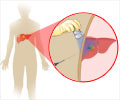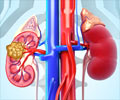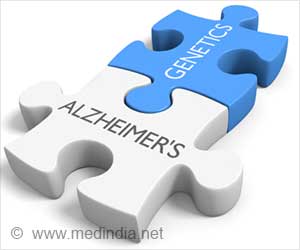Highlights
- Treating atrial fibrillation (AFib) with ablation can reduce the risks of stroke and death
- Ablation is safe, effective and a long-term solution for treating patients with AFib
Ablation is more of a long-term solution that uses heat or extreme cold to destroy the heart tissue, which is responsible for the faulty electrical signals, and reduces the need for medications that control rhythm.
Around 2.7 million Americans were found to have AFib, which is diagnosed when the heart beats inconsistently due to uncoordinated signals between its upper chambers.
AFib can cause fatigue, shortness of breath, lightheadedness, and chest pain, which can lead to increased risk of stroke and eventually even death.
"Less than 2 percent of patients undergo ablation early in the course of AFib when the procedure can be most beneficial. Our study shows that ablation may be considered as a primary treatment for everyone with the condition," said lead author Uma Srivatsa, professor of cardiovascular medicine at UC Davis Health.
Long-term Effect of Ablation on Atrial Fibrillation Patients
This new study was published in the journal Circulation: Arrhythmia and Electrophysiology, where the limitations by evaluating AFib treatment outcomes over a long period and for large numbers of multi-ethnic patients with similar health statuses were addressed.
"It's only with more robust, real-world studies like ours that we'll be able to develop a clear picture of what works best in addressing clinical outcomes for AFib patients," said Srivatsa.
Srivatsa and her colleagues looked into the medical records from the California Office of Statewide Health Planning and Development for AFib patients who were hospitalized between 2005 and 2013.
Participants were divided into two groups and about 4,000 each were compared. The first group was treated with ablation and the other group was not. The groups were matched regarding AFib patterns and prior hospitalizations.
The results showed that the outcome in terms of rates of death, ischemic stroke and hemorrhagic stroke within 30 days of hospitalization were similar. However, the benefits of ablation beyond 30 days improved the results.
- Only 84 patients died in the ablation group compared to the control group, where 189 patients died
- About 55 patients in the ablation group had ischemic stroke, whereas in the control group about 86 patients suffered ischemic stroke
- Around 17 patients in the ablation group and 53 patients in the control group suffered from hemorrhagic stroke
This study confirms the overall short- and long-term safety of ablation and can be used effectively for treating Atrial Fibrillation (AFib).
The data obtained in this study supports wider utilization of ablation and also can improve the awareness of its benefits, said Srivatsa.
Cardiologists from the University of Toronto have written in an editorial published with the study that retrospective studies have certain limits. However, Srivatsa and her colleagues have highlighted a significant area for additional research. Together with randomized trials, they have said that the UC Davis work will help "confirm or refute whether or not [AFib] ablation is truly a life or death situation."
Source-Medindia












